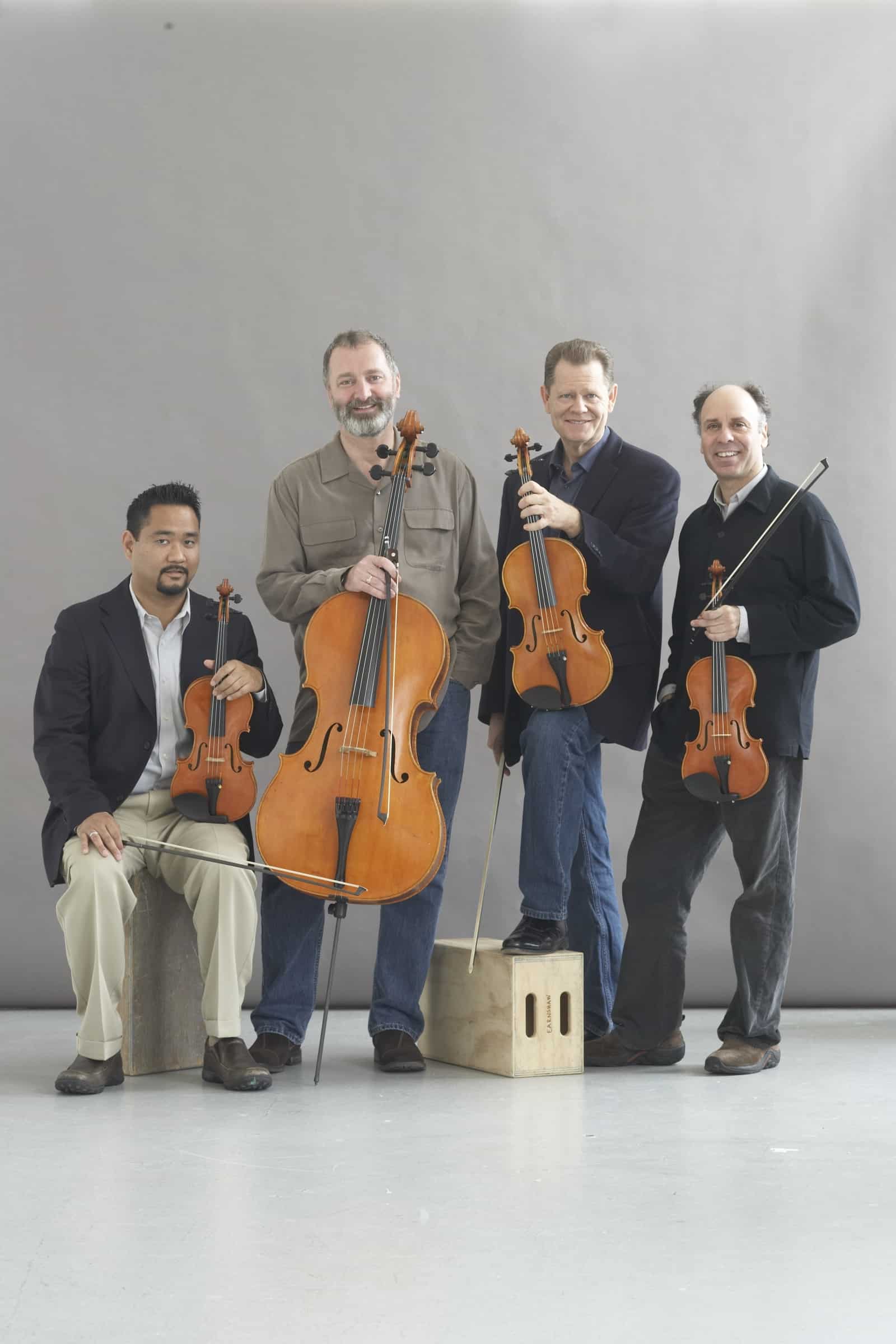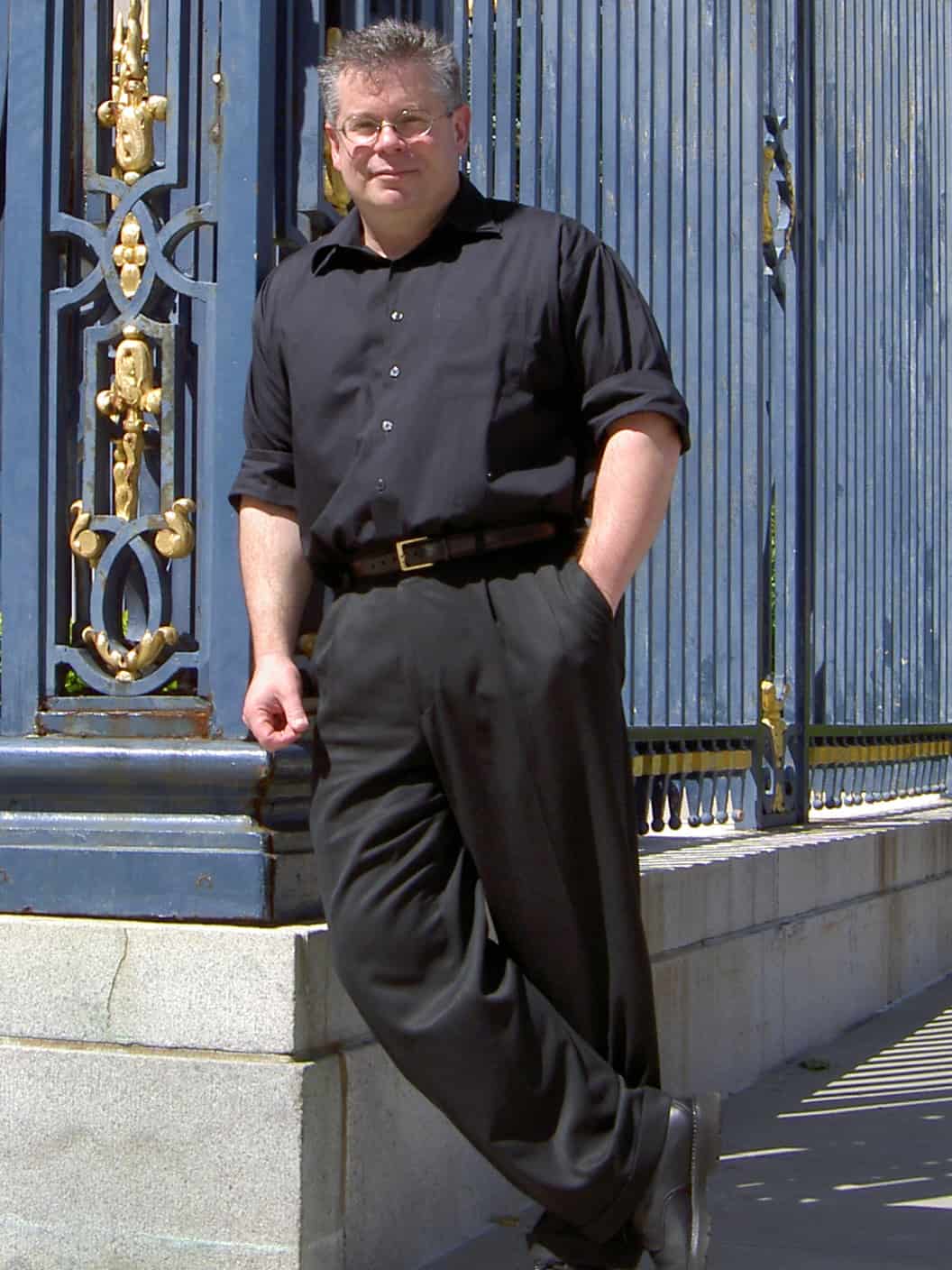 January 12th marks the first of a four-part lecture and concert series with music historian Robert Greenberg entitled The String Quartet at a Time of War: Benjamin Britten and his Contemporaries and presented by San Francisco Performances.
January 12th marks the first of a four-part lecture and concert series with music historian Robert Greenberg entitled The String Quartet at a Time of War: Benjamin Britten and his Contemporaries and presented by San Francisco Performances.
World War Two, which in Europe began in 1939 and ended in 1945, was the single most harrowing and devastating event of the twentieth century. Framed by the string quartets of Benjamin Britten, whose centennial will be celebrated in 2013, this series will explore works that reflect the broader European experience of the War years, as well as the period before the War (Concert One) and after the War (Concert Four). Along with Britten’s superb quartets, the series will feature some of the most important string quartets composed during the twentieth century, including quartets by the Czech composer Pavel Haas (who perished in Auschwitz-Birkenau in 1944), Béla Bartók, William Walton, and Dmitri Shostakovich.
In anticipation of these four concerts, Robert Greenberg will be writing blogs on the focus of each concert and posting them on his site. We’ll let you know when each one is up by giving you a teaser here! Thanks so much to Mr. Greenberg for his wonderful insight!
 The String Quartet in a Time of War: Pavel Haas, String Quartet No. 3
The String Quartet in a Time of War: Pavel Haas, String Quartet No. 3
In March of 1936, Nazi Germany reoccupied the demilitarized Rhineland and by doing so abrogated the Treaty of Versailles and the Locarno Pact. The remilitarization of the Rhineland was driven by domestic politics, not unlike our own invasion of Iraq: Hitler needed to shore up his relationship with the army leadership and his right-wing power base. Painfully, we now know that if France and Britain had acted in defense of the treaties, Germany’s generals were prepared to toss Hitler and his thugs out on their ears. But France and Britain did not act; their populations were still traumatized by the First World War – the “war-to-end-all-wars” – a war they presumably “won” in 1918.
Emboldened by international acquiescence, Hitler marched his army into Austria on March 12, 1938, the day after a well-planned coup d’état removed the legally elected Austrian government. Germany immediately annexed Austria, calling the whole shebang “Anschluss”, meaning the “link-up”. A plebiscite was held the following month, in which the Austrian people were asked to ratify the Anschluss. The Nazis claimed 99.7% of the electorate voted in favor of the Anschluss.
Sure they did….
Read this engaging post on www.robertgreenbergmusic.com!
Benjamin Britten and His Contemporaries
San Francisco Performances Inc.
Herbst Theatre
San Francisco, California
www.sfperformances.org
Saturdays at 10am
Program 1 (January 12):
The Gathering Storm
BRITTEN: Three Divertimenti for String Quartet (1933, rev. 1936)
HAAS: Quartet No. 3 (1938)
Program 2 (January 19):
Their Finest Hour
BARTÓK: Quartet No. 6 (1939)
BRITTEN: Quartet No. 1 (1941)
Program 3 (March 9):
The Hinge of Fate
BRITTEN: Quartet No. 2 (1945)
WALTON: Quartet in A minor (1946)
Program 4 (March 16):
Triumph and Tragedy
BRITTEN: Quartet No. 3 (1975)
SHOSTAKOVICH: Quartet No. 8 (1960)
